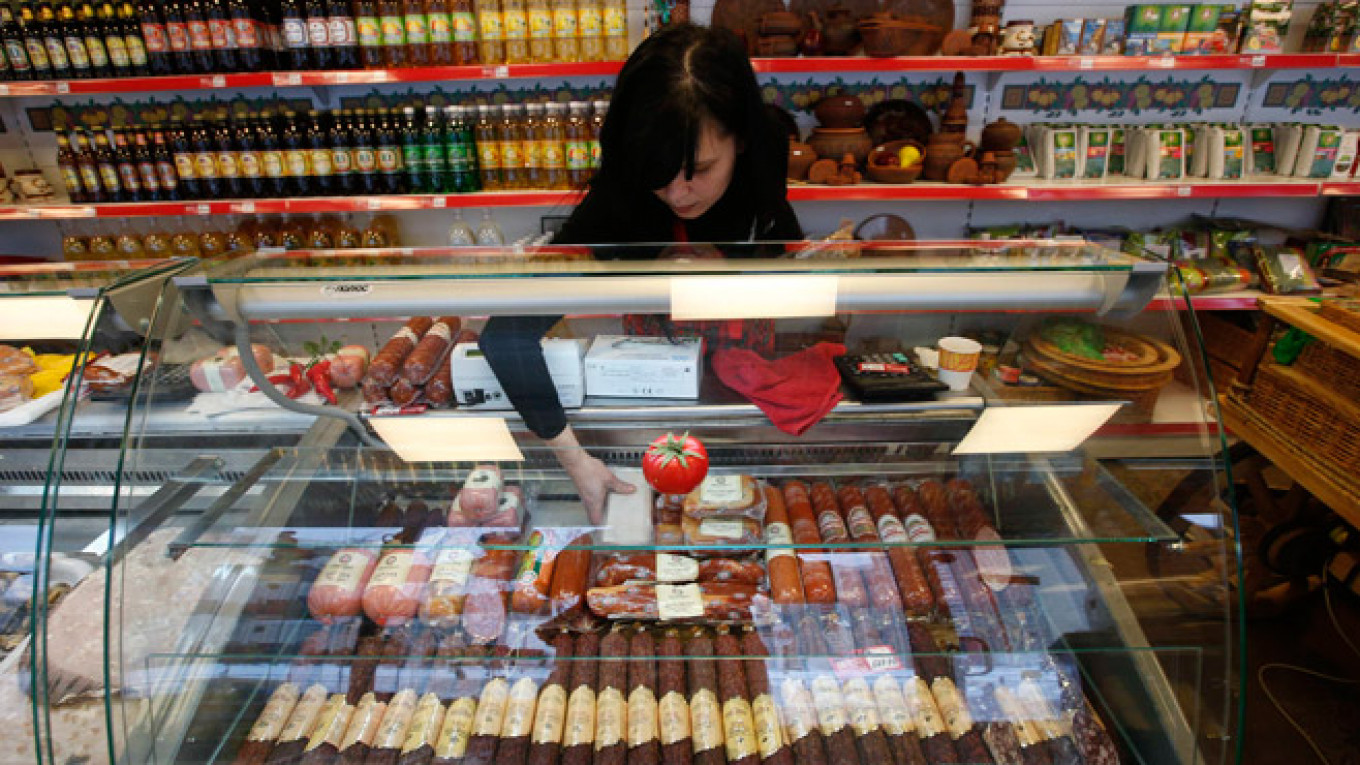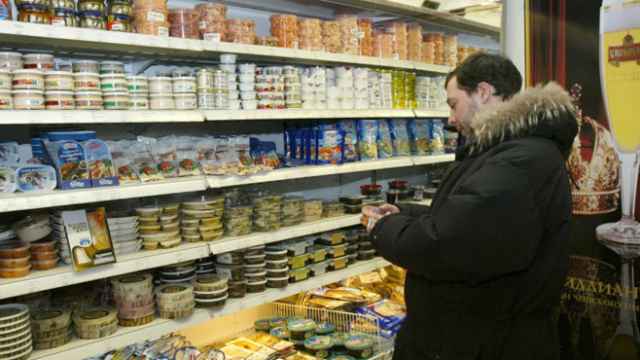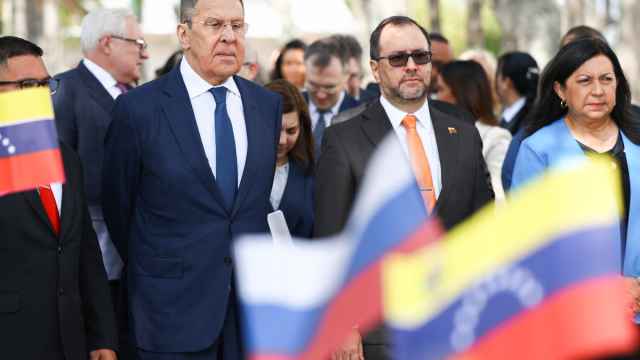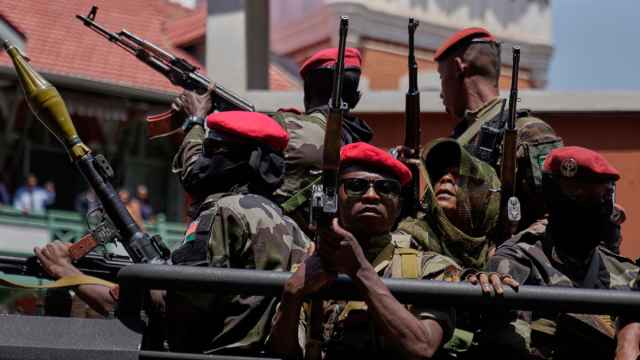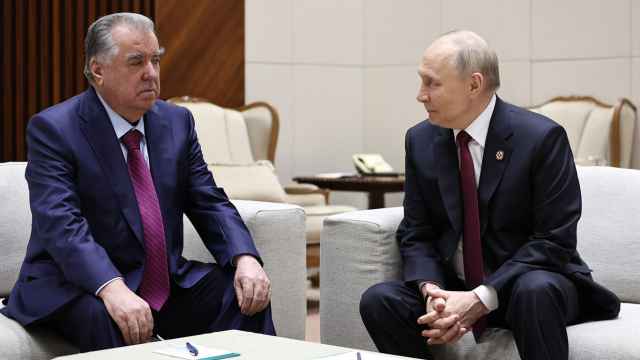In an apparent nod to the Soviet era, Russia's Foreign Ministry reportedly wants a "duty-free" store to open in central Moscow that would cater to foreign diplomats.
Foreign Minister Sergei Lavrov requested in a letter dated Dec. 19 that Prime Minister Dmitry Medvedev grant official permission for the store to open, news site Gazeta.ru reported Tuesday.
The store would reportedly sell goods usually carried by embassy commissaries, such as foreign food items and other products not readily available in Russia. It remains unclear whether the proposed store would be authorized to circumvent Russia's restrictions on food imports from the West, including the European Union.
The letter said the current means of distributing products to embassy commissaries are fraught with "financial losses and delays connected with organizing deliveries," the report said.
Gazeta.ru cited the head of the Federal Customs Service, Andrei Belyaninov, as saying that private company Viktoria Trade, which has "a lot of experience working in the duty-free business," could be a suitable candidate to run the store.
Viktoria Trade is registered at 10 Ulitsa Seregina, on the central thoroughfare Leningradsky Prospekt near the Dynamo metro station, and that location was cited in an official request to open the store, Gazeta.ru reported.
The report cited a representative in Medvedev's Cabinet as saying the Finance Ministry, Economic Development Ministry and the Federal Customs Service were currently preparing their conclusions about the initiative.
"No time frames have been decided," the representative was quoted as saying.
In the 1960s, the Soviet Union launched the Beryozka chain of stores, which sold goods to diplomats and the select few civilians who received income in foreign currency. The stores were rendered obsolete in the 1990s following the collapse of the U.S.S.R.
Contact the author at [email protected]
A Message from The Moscow Times:
Dear readers,
We are facing unprecedented challenges. Russia's Prosecutor General's Office has designated The Moscow Times as an "undesirable" organization, criminalizing our work and putting our staff at risk of prosecution. This follows our earlier unjust labeling as a "foreign agent."
These actions are direct attempts to silence independent journalism in Russia. The authorities claim our work "discredits the decisions of the Russian leadership." We see things differently: we strive to provide accurate, unbiased reporting on Russia.
We, the journalists of The Moscow Times, refuse to be silenced. But to continue our work, we need your help.
Your support, no matter how small, makes a world of difference. If you can, please support us monthly starting from just $2. It's quick to set up, and every contribution makes a significant impact.
By supporting The Moscow Times, you're defending open, independent journalism in the face of repression. Thank you for standing with us.
Remind me later.


